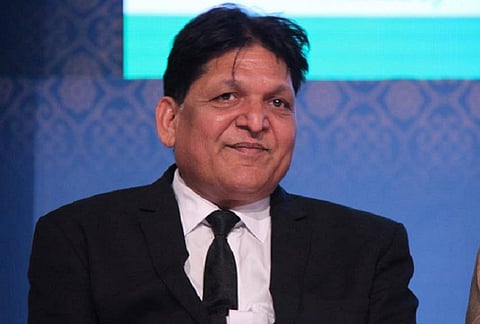

Chandra Bhan Prasad doesn’t remember golden jalebis or soft bread from his childhood. He remembers thick rotis made out of barley, dry pea flour and millets which they would have with spices like turmeric and red chilli. Food, is not just sustenance, but also an indicator of caste hierarchy for him.
That is why the Dalit entrepreneur made a foray into the food processing business with Dalit Foods, an e-commerce venture. Log on to the website and you will see a basic website with basic foods – mango pickle, arhar daal, spices, and two types of flour.
The staple food in many a Dalit household in north India is “mota anaaj” (cereals) and spices, says Chandra Bhan. “The upper castes considered millets, barley and dry peas too coarse for their taste. But now, science has proven that these are superfoods,” he adds.
Chanra Bhan says that while the barley flour he sells contains 39% dietary fibre, wheat contains 2.7% and other multi-grain flours around 15%. “But in the eyes of the society, a Dalit is born impure. The quality of my products is unadulterated and pure. But will people buy it knowing that an untouchable is selling them? That’s what I want to find out,” he says.
For him, this is essentially an exercise in marketing – to see if there is brand equity in selling food with the Dalit tag.
In an interview to Livemint, Chandra Bhan told Ashwaq Masoodi that so far, manufacturers had continued to sell products manufactured by Dalits as their own. “Now, we are branding Dalit products, and according them direct market access,” Chandra Bhan said. He added that Dalits should no longer have to hide their identity and should “integrate with the society in a real sense.”
Started with a humble budget of Rs 5 lakh, Dalit Foods does small but steady business, getting about 10 orders a day. The buyers majorly fall into two categories. The first one is that of Dalit officials, most of who are bureaucrats or well-settled working professionals. The second one is more interesting:
“The other set of people are those who open a champagne bottle on the occasion of starting something new. They form a sizeable chunk of my customers,” he explains.
So while one set of customers are those who have climbed high enough on the class ladder to soften the blow of their caste, the second set is more concerned with the quality of his product than his caste. But it’s the middle class consumer which continues to elude Chandra Bhan. “It’s that set of English-speaking, educated people who give the impression that caste does not matter. But they haven’t really been able to let go of it,” he says.
So far, there has been no criticism of the venture. “But no real applause either,” points out Chandra Bhan. But this doesn’t deter him and he’s still optimistic. “Our orders are increasing slowly. Besides, if Dalit Foods succeeds, it will encourage other Dalit youth to enter the food industry,” he says.